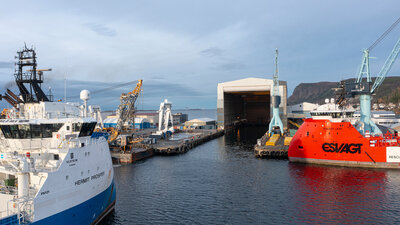New technology can make smarter, safer and greener operations
The need to cut costs
The great downturn we've seen in the oil and gas sector in recent years, has led to an increased consciousness of controlling costs in ship operations. Operations must be as cost-effective as possible to compete in a tough market. Up until today, individual preferences have influenced how ships are operated, and ship management has been exercised aboard each ship. Fleet management has mainly consisted of manning the vessels, as the information from operations have been filtered through the operators of the ship. This is not an ideal situation for a ship owning company wanting to cut costs, since the control of the operations has been made upon personal preferences and experience and not real data.
Technological change of pace at sea
The costs of getting data from the ship to shore has until now made the transition to shore-based control centers difficult. As we are currently experiencing a technological change of pace at sea, new technology will help reduce the costs immensely. The first one to step into the new platform, will get major benefits when competing with old technology.
By using event-driven architecture and communication standards based on Data Distribution Services (DDS), the amount of data sent when live streaming data traffic is low compared to the existing control systems. By installing new, or replacing existing technology, the new event-driven control system will save up to 90% strain on the systems and on data traffic.
Moving control to shore
With new technology on board, vast opportunities are opened. The ships can be operated smarter and more efficient. By transmitting the control to land, the fleet and ship management can be handled much more effectively. Control and instructions for different conditions can be the key for making your fleet more competitive. Data can be collected from several ships, and you get a more specific insight of what is profitable and not. You can analyze data to support you in decisions instead of relying on the preferences of the on-board crew only. Human errors are reason for 75-96 % of all incidents at sea, by using analysis to support decision making, marine operations will become safer.
Analytics reduces environmental footprint
Analytics of fuel consumption is another huge potential for keeping costs down. By analyzing the fleet, different ship designs and technologies, the ship owners and the third-party equipment manufacturers will be able to offer products and ships that significantly reduce the environmental footprint with respect to emissions.
New technology enables onshore ship and fleet management - making smarter, safer and greener operations.



